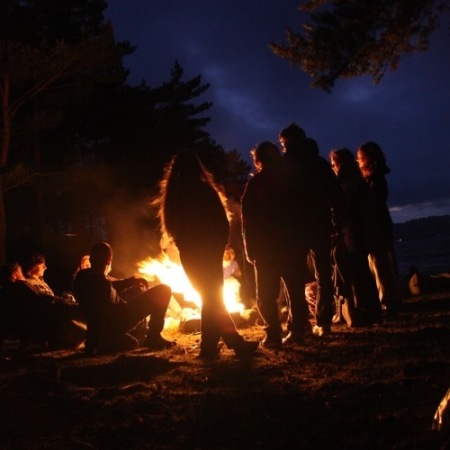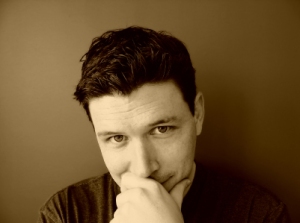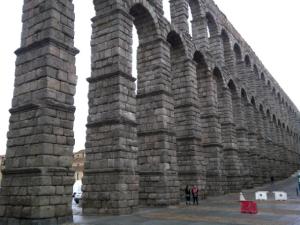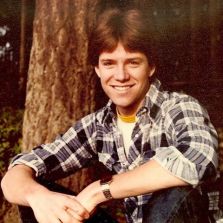Last week I took my first “Focus Day” since joining CCCA more than two years ago. I had been advised to do this by a couple camp/conference leaders, and had been craving the time to get away by myself, spend time with God, dream with Him about the future, ask for His guidance on current challenges and evaluate some of the opportunities that lie ahead for CCCA.
The day, which I had scheduled months before, turned out to be one of those absolutely gorgeous Colorado winter days that make me think of heaven. I went to the Broadmoor Hotel, dropped off my briefcase in a comfortable lounge with a roaring fireplace and began my walking prayer time around the lake. The temperature was near 50 degrees at 8:30 in the morning, yet it seemed that I had the whole property to myself. In fact, as I rounded the lake, I only passed one other person.
I stopped at the first tee box on the Ross Golf Course, which is a stone’s throw from the lake. As I looked up at the mountains and sky, then around at the golf course, I prayed, “Lord, I am not even worthy to stand here in your presence. I am clearly the ugliest thing on the landscape right now.” And again I thought of heaven and why I will fall on my face in the glory of His presence one day.
I was so content to just stand there and drink in the sunshine and scenery. I didn’t care about the time, and I had no set schedule – I was simply there to enjoy God’s presence and His creation for those moments. Then the clock on the mountain above the lake began to chime. But rather than rushing me from my reverie, the sound called me to stay still and listen. I heard every note of those rich, strong bells, and only wished that they could continue to ring so I could stand and listen even longer.
Then God provided a contrast.
I went to the Broadmoor coffee shop. As I walked in, the staff member from the adjacent gift shop said, “I’m sorry. The barista had to step out to run a quick errand. I’m sure she’ll be back in just a minute.” I noticed another customer standing at the coffee counter, a stern look on her face. I walked to the magazine rack and picked up a magazine with Aaron Rodgers on the cover and began to read the predictions for who would win the Super Bowl this year. (The expert had chosen the final two AFC teams correctly, but had missed both teams in the NFC championship game.)
I overheard the customer say to the gift store staffer: “This is ridiculous. How could this happen?”
“I’m so sorry, ma’am. She ran out of here pretty quickly. I think it was rather an emergency.”
“Well, this is just wrong. And somebody needs to know about it.” Then the customer stormed out of the shop and headed toward the front desk.
Less than 30 seconds later, the barista returned, and asked the gift store staffer if everything was all right. “Well, this guest needs to be served,” she said, waving toward me and avoiding the story of the angry customer altogether.
As I stepped to the counter, I saw the angry woman walk briskly past the coffee shop and out the door, looking more perturbed than before.
I ordered a roll and a coffee, and when I attempted to pay, the barista said, “This one is courtesy of me, for making you wait.”
I thanked her and left.
As I returned to my secluded fireside lounge, I realized that the impatient woman had missed out on receiving whatever she would have ordered, for free, and instead opted to run to the front desk and vent. In the time it took to lodge the complaint, she could have left the building with a free coffee and cinnamon roll. (I love cinnamon rolls!)
I also thought of how many times I’ve been in that woman’s place. Thinking of what I want, incredulous that the people who were here to serve me had dropped the ball, cost me time, failed to meet my expectations. On this day, when taking my time was a good part of the agenda, I refused to get upset. And I was rewarded. The angry woman left empty handed and caffeine-free. I pitied the next person on her calendar.
I don’t want to be her. Ever again.
I want my life, my attitude, my countenance to reflect the peace that passes understanding. I want to demonstrate to my family and my colleagues a grace that refuses to give in to the irritation of the unmet expectation.
By the way, I caught a snippet of the barista’s comment to the gift shop employee, “It was my son. He had an accident in his car and didn’t know what to do…”
Seems like that was more important than an angry woman’s cup of coffee – and even my cinnamon roll.

 In these meetings I noticed that a lot of propagating, agenda promoting, and pontificating takes place. More recently, though, I have had the opportunity to serve alongside some very wise men and women who avoid the three “p’s” mentioned above. These leaders have learned the art of asking the right questions. They remind me of Jesus, who was the Master Question Asker! The four Gospels share nearly three hundred questions asked by Jesus! For example:
In these meetings I noticed that a lot of propagating, agenda promoting, and pontificating takes place. More recently, though, I have had the opportunity to serve alongside some very wise men and women who avoid the three “p’s” mentioned above. These leaders have learned the art of asking the right questions. They remind me of Jesus, who was the Master Question Asker! The four Gospels share nearly three hundred questions asked by Jesus! For example: and I receive the same sense of relief and peace when I’m out in nature, surrounded by the sights and sounds of God’s creation. And it turns out that maybe we’re wired that way; that God may have created us in such a way that we receive benefit from being in nature, particularly when the color green is part of the experience.
and I receive the same sense of relief and peace when I’m out in nature, surrounded by the sights and sounds of God’s creation. And it turns out that maybe we’re wired that way; that God may have created us in such a way that we receive benefit from being in nature, particularly when the color green is part of the experience.
 King David, finally settled in as king of Israel after years of being hunted by his predecessor, sits in his new cedar palace, at peace with his neighbors, and says, “Hey, how can I enjoy this cool new house, when the ark of God is still sheltered in a tent? That doesn’t seem right. I’ll build God a house to dwell in, too, now that I’ve got some time on my hands.”(My paraphrase.)
King David, finally settled in as king of Israel after years of being hunted by his predecessor, sits in his new cedar palace, at peace with his neighbors, and says, “Hey, how can I enjoy this cool new house, when the ark of God is still sheltered in a tent? That doesn’t seem right. I’ll build God a house to dwell in, too, now that I’ve got some time on my hands.”(My paraphrase.) The first landmark we saw as we exited the bus was the Aqueduct of Segovia, a working aqueduct that the Romans built in the first and second centuries. An impressive structure that was constructed with some 25,000 huge granite blocks and no mortar, it stands nearly 100 feet tall at its highest point. (Side note: I’m building a small retaining wall in my yard using cinder blocks and no mortar, and I’m not sure how long it will stand.) But looking up at the lower-level arches, which stand about four stories high, I was blown away by the engineering that has enabled these un-mortarted stones to stay in place for so long. The entire visible length of the aqueduct gives the feeling of permanence and stability.
The first landmark we saw as we exited the bus was the Aqueduct of Segovia, a working aqueduct that the Romans built in the first and second centuries. An impressive structure that was constructed with some 25,000 huge granite blocks and no mortar, it stands nearly 100 feet tall at its highest point. (Side note: I’m building a small retaining wall in my yard using cinder blocks and no mortar, and I’m not sure how long it will stand.) But looking up at the lower-level arches, which stand about four stories high, I was blown away by the engineering that has enabled these un-mortarted stones to stay in place for so long. The entire visible length of the aqueduct gives the feeling of permanence and stability.

 says that if we hire people just to fulfill a function, the employee becomes no different from a chair that fulfills a function. Instead, he says, “We should hire people to participate with us in our dreams.” And when our dreams become their dreams, the services we provide will be measurably better because of the emotional investment of our team members.
says that if we hire people just to fulfill a function, the employee becomes no different from a chair that fulfills a function. Instead, he says, “We should hire people to participate with us in our dreams.” And when our dreams become their dreams, the services we provide will be measurably better because of the emotional investment of our team members.